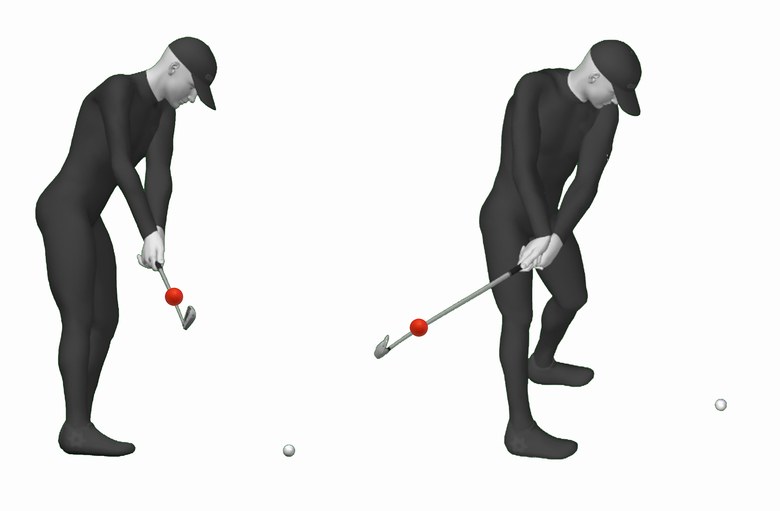By Matthew Rudy
There’s an ocean of golf instruction devoted to telling you how to move your body to hit it better. And yes, turning, pivoting, shifting—all that stuff is important to playing good golf.
But Golf Digest Best in State Teacher Tom Rezendes says there’s one simple way to cut through the fluff and focus on a single thing that will get you hitting it, yes, more like a tour player.
It starts with learning what your “hub” is, and understanding how to move it. “The hub is the point where your hands connect to the grip, and the path you move that hub on is essentially a fingerprint of your swing,” says Rezendes, who runs the NorCal Golf Academy in Walnut Creek, Calif. “The hub—your hands—move on a three-dimensional path during the swing, and that path determines how much energy you can transfer into the ball.”
It will come as no surprise that players like Dustin Johnson are much better at transferring energy than you are. Genetics and talent are part of it, but good players are also a lot more efficient with their hand path. You can be, too. “Average players suck it inside and move the hub more shallowly going to the top, and then go more upright or steep on the way to the ball and even more steep on the exit,” says Rezendes. That means you’re essentially getting in your own way. “Tour players have a path that’s a lot steeper on the way back, and the downswing goes back to the ball below that initial path and the exit is even more below that.
What does this mean for you? “You need to get the club up more way earlier than you think instead of banking it around you,” says Rezendes. “It may feel ‘right’ or ‘powerful’ to do what you think is ‘winding up,’ but it’s not really doing anything for you. You need 45 degrees of arm lift by the time you have 45 degrees of shoulder turn. Put your bag behind you with the base in line with the ball and it will force you to take the club up more. Even if you can’t swing as fast as somebody like Dustin Johnson, you’re still going to get way more out of what you can do.”
And here’s a further visualization on what separates tour pros and amateurs:









